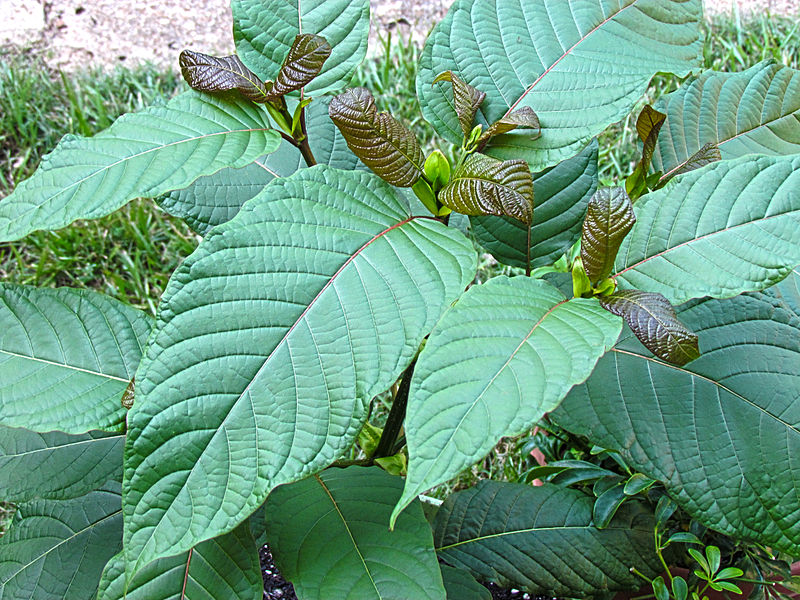Kratom Smugglers Face Prison in Asia
/By Pat Anson, PNN Editor
If you think kratom’s legal status is under siege in the United States, be glad you don’t live in Southeast Asia. Although the kratom tree (mitragyna speciose) is indigenous to the region and its leaves have been used for centuries as a natural stimulant and pain reliever, possessing kratom could get you sent to prison in some countries.
Recently two Malaysian men were arrested at a port in Singapore for trying to smuggle several bottles of kratom tea hidden in a truck.
Kratom contains mitragynine and 7-hydroxymitragynine, two alkaloids that are Class A controlled substances in Singapore – which has some of the world’s toughest drug control policies.
If convicted, the men face a minimum of 5 years in prison and 5 strokes with a cane. The maximum penalty in Singapore for importing kratom is 30 years imprisonment and 15 strokes with a cane.
Singapore’s Immigration & Checkpoints Authority (ICA) announced the arrests on its Facebook page, where hundreds of people praised the agency for its diligence.
“Good job! This is why I enjoy Singapore so much,” wrote one poster.
“Good job ICA for protecting the country,” said another.
SINGAPORE ICA
Decriminalization in Thailand
Kratom has been illegal in Thailand since 1943, but efforts are underway to decriminalize it. Justice Minister Somsak Thepsutin recently formed a committee to consider legalizing kratom-based medicines. If kratom is decriminalized, as many as 10,000 drug offenders in Thailand could have their convictions overturned, according to The Nation.
“I will proceed with this project as soon as possible because this will truly benefit society,” said Somsak, who believes kratom it is not strongly addictive and should not be classified as a narcotic.
"Kratom leaves do not match those characteristics," said the minister. "Those who use them can stop using it easily, and the leaves can be used as herb to relieve pain, fever, dysentery, or diarrhoea. Also, it is better than morphine thirteen times in killing pain.”
Kratom is also used recreationally in Thailand in a cocktail known as “4 x 100,” named after its four main ingredients: kratom leaves, cough syrup, Coca-Cola and ice.
Indonesia Banning Exports
Over one and a half tons of kratom were recently seized in Turkey at the Istanbul Airport. A drug sniffing dog detected kratom powder in dozens of packages wrapped in plastic. The shipment was heading to the United States from Indonesia and had an estimated street value of $12 million.
“Subject to numerous health warnings, kratom has been banned in most of the countries in the world and is known being highly addictive and linked to numerous deaths,” a local media outlet reported.
Although domestic consumption of kratom is banned in Indonesia, the country is the world’s largest grower and exporter of kratom. Those exports could end in 2024, as Indonesia’s Ministry of Health has called for a 5-year transition period to allow kratom farmers to shift to other crops.
Earlier this year, kratom advocates claimed the U.S. Food and Drug Administration was lobbying the Indonesian government to ban kratom farming. The FDA told PNN the agency “inquired” about kratom’s legal status in Indonesia, but “has not advocated either formally or informally about a change in law in Indonesia or any other country relative to kratom.”
Kratom is illegal in six U.S. states -- Alabama, Arkansas, Indiana, Rhode Island, Vermont, and Wisconsin – and several cities and counties have enacted local ordinances banning sales. In the other 44 states, kratom is loosely regulated as a dietary supplement, although federal agencies are engaged in a protracted public campaign against its use.
The FDA says kratom is addictive, has opioid-like qualities and is not approved for any medical condition. The agency has released studies showing salmonella bacteria and heavy metals contaminating a relatively small number of kratom products. Kratom has also been linked to dozens of fatal overdoses -- although multiple substances were involved in nearly all of those deaths.
Last year the Department of Health and Human Services (HHS) recommended to the DEA that kratom be classified as a Schedule I controlled substance – alongside heroin and marijuana — which would effectively ban it nationwide, just as it is in Singapore. Kratom is also illegal in Australia, Denmark, Latvia, Lithuania, Poland, Romania, Sweden and the UK.





